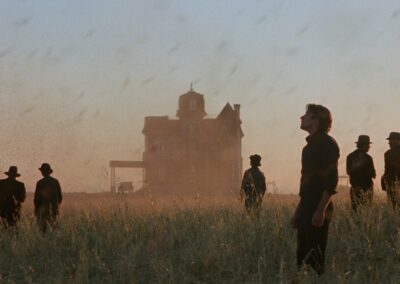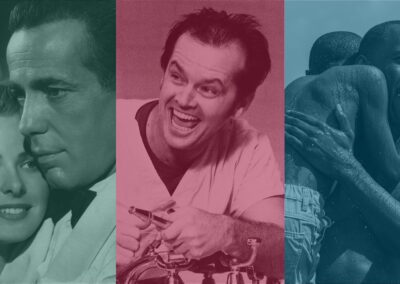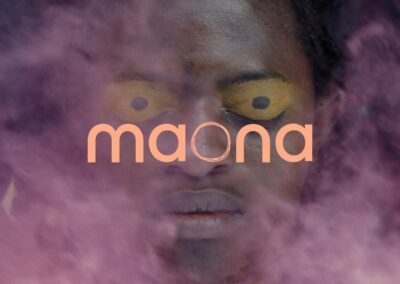As regular readers will know, I have been a Film and Media teacher for nearly 40 years and was, in fact, one of the very first students in the country to gain a Degree in the subject in the early 1980s. As you can imagine, this means that in a lifetime absolutely devoted to cinema there are not many films which have passed me by. But there are some – and they bug me.
I’ve never seen anything by Wong Kar Wai, for example – or Ozu (rated 5th and 6th in the latest BFI greatest films of all time list); to my eternal chagrin, I’ve not seen Bergman’s Persona (18th in the list); shamefully, I’ve never watched anything by Bresson; Fellini’s 8 1/2 and La Dolce Vita leave me cold; I’ve only ever seen Solaris by Tarkovsky (and that was a slog) and have yet to see Chantal Akerman’s Jeanne Dielman…, which is now “officially” the greatest film of all time. Shoot me, now.
The point here is that there is obviously no such thing as the “greatest film,” although I am certainly not against the idea of a cannon of significant works. Until recently, the Oscars were also some sort of kite mark of quality and, if I had a student who wanted to watch some great films, I always used to refer them to films which were nominated for Academy Awards from the 1930s through to the mid – 1990s. They were sure to find something of merit (even if it was likely to be American).
Indeed, if I were to produce my own list of “great films,” I’d include a significant number which originally went unloved and have been widely ignored by the BFI’s poll. I always thought Cukor’s A Star is Born was one of the greatest musicals of all time; I happen to think Michael Cimino’s “disaster” Heaven’s Gate is a masterpiece; Robert Altman’s Short Cuts is one of his finest films (and McCabe and Mrs Miller makes me cry); Peckinpah’s Pat Garrett and Billy the Kid is a seriously under-rated western and Malick’s Thin Red Line is one of the greatest of all war films (maybe pipped at the post by Kubrick’s Paths of Glory). Marnie has always been one of my favourite Hitchcock films; George A Romero’s Dawn of the Dead was amazingly prophetic; the Coen brothers’ Fargo is flawless; Once Upon a Time in America is Leone’s most overwhelmingly moving film; Ken Loach, Shane Meadows and Mike Leigh have all made staggeringly good British films and, if you’re looking to Europe – what about Audiard? A Prophet and Rust and Bone are drop-dead genius. Or Pawlikowski? Both Ida and Cold War are awesome. David Lean’s Ryan’s Daughter most definitely merits re-appraisal, in my opinion and Roeg’s Bad Timing and Eureka are both superb. And, as for Bob Fosse’s Lenny; Siegel’s The Shootist and Charley Varrick; Lumet’s Prince of the City and Dog Day Afternoon, well, don’t get me started on the great movies of the 70s and early 80s…Plus, if you want something more recent, how about Wes Anderson’s Grand Budapest Hotel, PT Anderson’s Licorice Pizza, Aronofsky’s Requiem for A Dream?
Interestingly, with a few minor exceptions (Lenny, for instance), I’ve seen nearly all these films at the cinema on big screens – an experience which adds a minimum of what advertisers might call “25% Extra” to the enjoyment factor. I never feel I really “know” a film, no matter how many times I’ve watched it in the classroom, until I get to see it at the cinema. In fact, for most of my life, I have been seeking out opportunities to see the films I’ve “missed” and that probably explains my gratitude to cinemas like the Ultimate Picture Palace which provide us all with the opportunity to watch older films as they were intended: in the dark, free from distraction, in the company of others and, of course, on a screen which is bigger than us.
Which leads us very indirectly to Krzysztof Kieslowski’s Three Colours Trilogy, screening at the UPP in digitally remastered prints over the coming months. At this point, I have to admit, I’ve never seen any them but they have been “on my radar” ever since they were first released in the early 1990s, at a time when there was still a sense that cinema was an art-form capable of doing so much more than selling popcorn and Nachos and popular culture felt like it mattered.
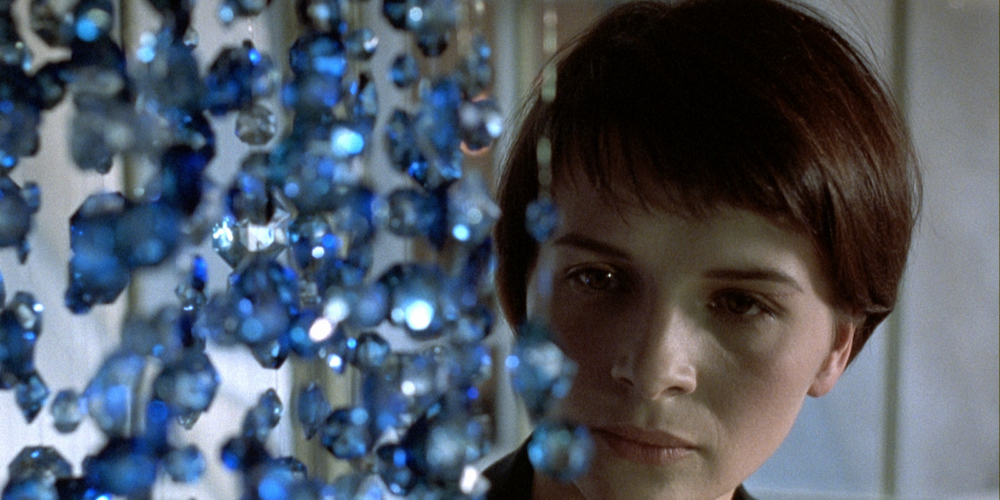
Kieslowski was a prolific Polish director who died tragically young at the age of 54 during open heart surgery. Best known for his 10 part TV series Dekalog made in the mid-80s (which included two films which subsequently went on to be screened at cinemas – A Short Film about Killing and A Short Film about Love) he apparently intended to retire after his Three Colours trilogy (named after the three colours of the French flag – Blue, White and Red) which were originally released in 1992 and 1993.However, in spite of receiving huge acclaim in his lifetime, none of his works currently feature in the latest BFI list (nor in its partner list, which was chosen by film directors, which is arguably a more reliable source of cinematic achievement) so the chance to see three slightly overlooked gems is something I am inevitably looking forward to, given that they have a reputation for being such significant achievements – yes, I could no doubt have “caught up with them” before now on DVD – but that’s unlikely to do them justice.
Kieslowski’s two “Short Films” were screened by the BBC in the 1980s (at a time when the public service broadcaster also played a key role in shaping its audience’s attitudes towards cinema – those were the days) and I remember both being powerful, if bleak works, naturalistic and edgy stuff, so I am not expecting the Trilogy to be a bundle of laughs – but I do want to see them as they were intended: before a live audience and in a space designed for the watching of film (i.e. the UPP).
The Trilogy uses the French flag’s colours to symbolise the principles of liberty, equality and fraternity and each provides its female-focused narratives with some heavy star power. Blue consolidated Juliette Binoche’s position as one of France’s best, most versatile actresses; White (which is actually quite comedic, apparently) featured the wonderful Julie Delpy and Red starred Irene Jacob and one of the most celebrated French male actors of all-time, Jean-Louis Trintignant, who also appeared in, amongst others, A Man and a Woman, The Conformist, City of Lost Children, A Self-Made Hero and Amour before his death in 2022, at the age of 91.
Blue tells the emotionally draining tale of a woman recovering from a tragic car crash; White is a tale of divorce and the end of love (blackly comic, one assumes) and Red is a tale of friendship and destiny. Kieslowski’s last film, it was described by Empire magazine as “a superb example of French arthouse.” In fact, the critics were almost unanimously glowing in their reactions to the Trilogy and all three films received awards aplenty – with Red being nominated for three Academy Awards (including best director) and for the prestigious Palme D’Or at Cannes. Whilst we now live in a world where the internet has made everyone’s opinion of the same merit (“I like it because it’s good and it’s good because I like it,”) for me, any film that gets critical acclaim cross the board is probably worth a look. And we’re not just talking about one film here – but all three. So, for these reasons, you’ll find me in my usual seat at the UPP over the coming months.
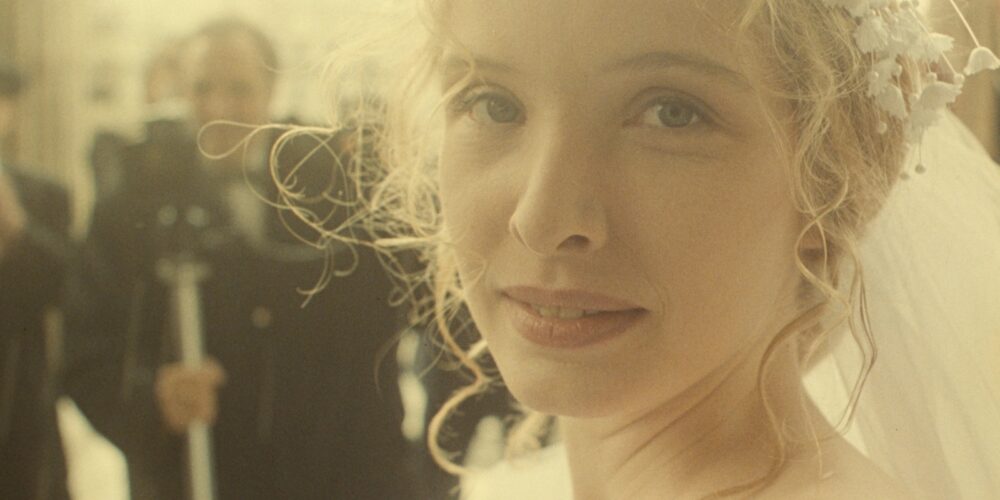
But it’s not all about looking backwards and it’s worth mentioning that we cinema-lovers are always also looking forward to the next great film and hoping to discover the next interesting director too. There’s always something intriguing lurking around the celluloid corner.
With this in mind, I, like many others, am also looking forward to Beau is Afraid, the latest from horror maestro Ari (Midsommar) Aster with Joachim Phoenix in the titular role (the trailer looks bonkers). Greta Gerwig’s Barbie might be good stuff (if her Little Women is anything to go by); it’ll be interesting to see Nolan tackle the nuclear debate in his own bombastic style with Oppenheimer and why would we not want to be in the queue for Tom Cruise’s latest Mission: Impossible?
It’s not all subtitled, existential angst in the film lover’s shopping basket, you know – there’s room for fun too. But like all good diets, variety is essential – too much of a good thing can be bad for you and too much rubbish certainly rots your teeth. So, why not add a bit of spice to your movie going palate and get your tickets for the Three Colour marathon and then, maybe we can meet again when the new Indiana Jones movie opens? And talk Kieslowski.
Dr Andrew C Webber is a Film teacher and examiner with over 37 years’ experience. He currently contributes to Cinema of the 70s and 80s magazines (available from Amazon); cassette gazette fanzine (available from cassette pirate on e-bay) and the Low Noise podcast available on Spotify and Apple podcasts.
